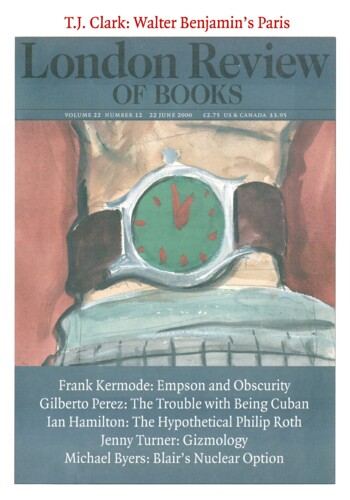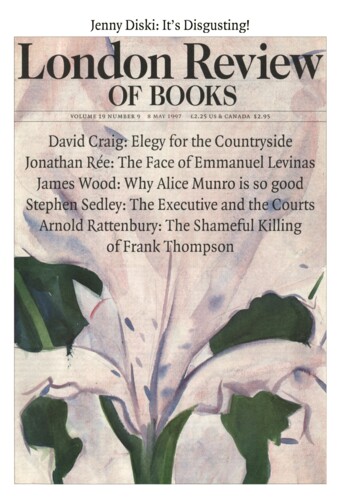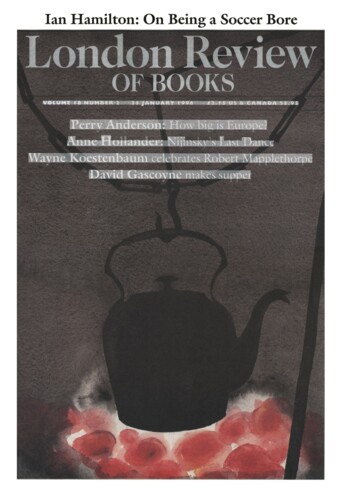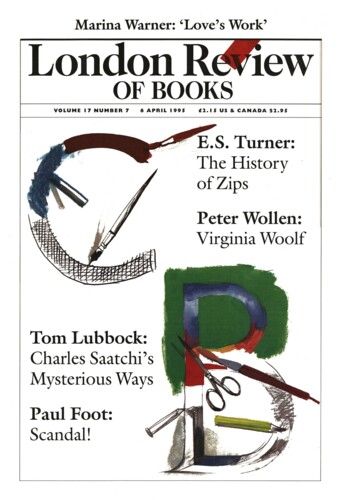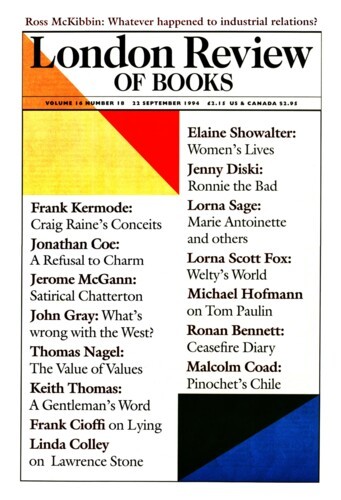Blather
Frank Cioffi, 22 June 2000
The first problem which besets an attempt to assess a cultural history of rumour is to determine what the cultural history is a cultural history of. Hans-Joachim Neubauer seems uncertain. Sometimes he follows the convention according to which what constitutes a rumour is its baselessness, if not its falsity; at others its mode of transmission via anonymous and multiple sources, irrespective of the truth or warrantability of its content, is his criterion. This ambiguity is implied by the prominence given to Virgil’s account of Fama from Book 4 of the Aeneid, which provided the epigraph for Gordon Allport’s The Psychology of Rumour (1947), one of the foundation works in this area. The rumour about Dido’s consummation of her love for Aeneas was not only correct, however, it was precipitated by the event itself. Neubauer also treats the beacon flares which proclaimed the sacking of Troy and the impending return of Agamemnon as rumour – though it was not a rumour but a prearranged signal.
